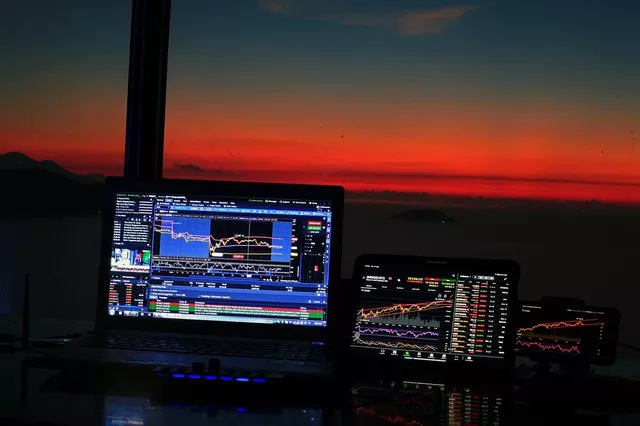Futures trading has become a popular financial instrument that attracts individuals from various backgrounds, including investors, speculators, and hedgers. This article aims to delve into the motivations behind futures trading, highlighting the key reasons why people engage in this dynamic market. By understanding the driving factors, individuals can make informed decisions and navigate the world of futures trading more effectively.
Potential for Profit and Speculation
Leverage: One of the primary reasons people trade futures is the potential for significant profits through leverage. Futures contracts allow traders to control a larger position with a smaller investment, amplifying their potential returns.
Price Fluctuations: Futures markets are known for their volatility, presenting opportunities for speculators to profit from price movements. Traders can capitalize on both rising and falling markets, employing strategies such as long or short positions.
Short-Term Trading: Futures contracts are often used for short-term trading strategies, aiming to take advantage of short-term price fluctuations. Traders can enter and exit positions quickly, seeking to generate profits within a relatively short time frame.
Risk Management and Hedging
Protection Against Price Volatility: Futures trading allows participants to hedge against price volatility in underlying assets. Hedgers, such as farmers, producers, and manufacturers, use futures contracts to lock in prices for commodities or inputs, mitigating the risk of adverse price movements.
Portfolio Diversification: Futures contracts provide an additional avenue for portfolio diversification. By including futures positions in a diversified investment portfolio, individuals can reduce overall risk and potentially enhance returns by spreading their investments across various asset classes.
Risk Transfer: Futures markets enable the transfer of risk from one party to another. For example, a producer may transfer the price risk of their product to a speculator by entering into a futures contract. This allows the producer to focus on their core business while offloading the risk to a willing participant.
Liquidity and Efficiency
High Liquidity: Futures markets are highly liquid, meaning there is a large volume of trading activity and a significant number of participants. This liquidity ensures that traders can enter and exit positions quickly without significant price impact, providing ease of execution.
Price Discovery: Futures markets play a vital role in price discovery. As trading occurs based on the supply and demand dynamics of the underlying asset, futures prices can reflect market sentiment and provide valuable information about the future direction of prices.
Efficiency and Transparency: Futures markets are known for their efficiency and transparency. With readily available price information and accessible order books, traders can make informed decisions based on market conditions. Additionally, futures markets are regulated and subject to oversight, enhancing trust and confidence among participants.
Access to a Wide Range of Assets
Diversified Asset Classes: Futures markets cover a broad range of assets, including commodities (such as oil, gold, and agricultural products), financial instruments (such as stock indices and currencies), and even weather conditions. This diversity allows traders to access different markets and capitalize on various opportunities.
Global Market Exposure: Futures trading provides exposure to global markets without the need for physical ownership of assets. Traders can participate in international markets and benefit from global economic trends, diversifying their investments beyond domestic boundaries.
Accessibility: With the advent of online trading platforms, futures markets have become more accessible to individual traders. This accessibility enables individuals to participate in futures trading regardless of their geographic location or background.
Conclusion
Futures trading offers a range of opportunities and benefits to participants, including the potential for profit, risk management, liquidity, and access to diverse asset classes. Whether driven by speculative motives or the need for risk mitigation, individuals can leverage futures contracts to achieve their financial goals. However, it is important to remember that futures trading involves risks and requires careful consideration, education, and risk management strategies.


